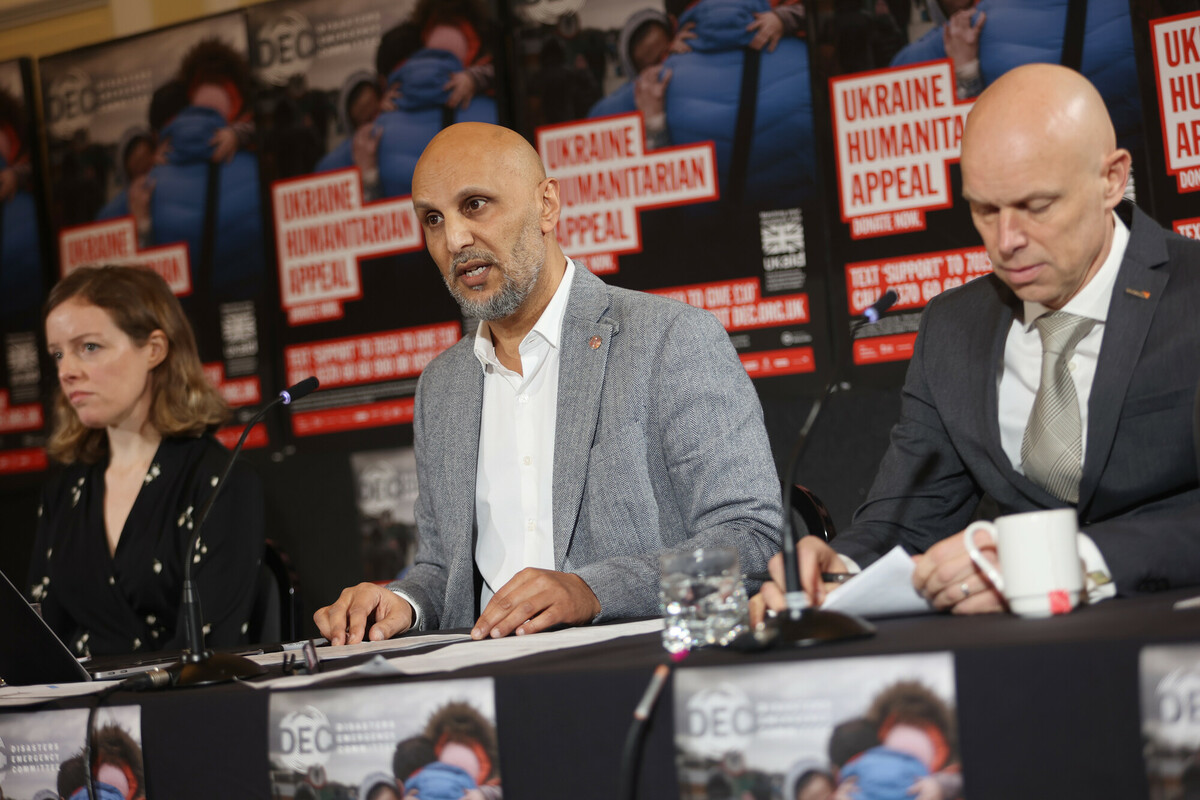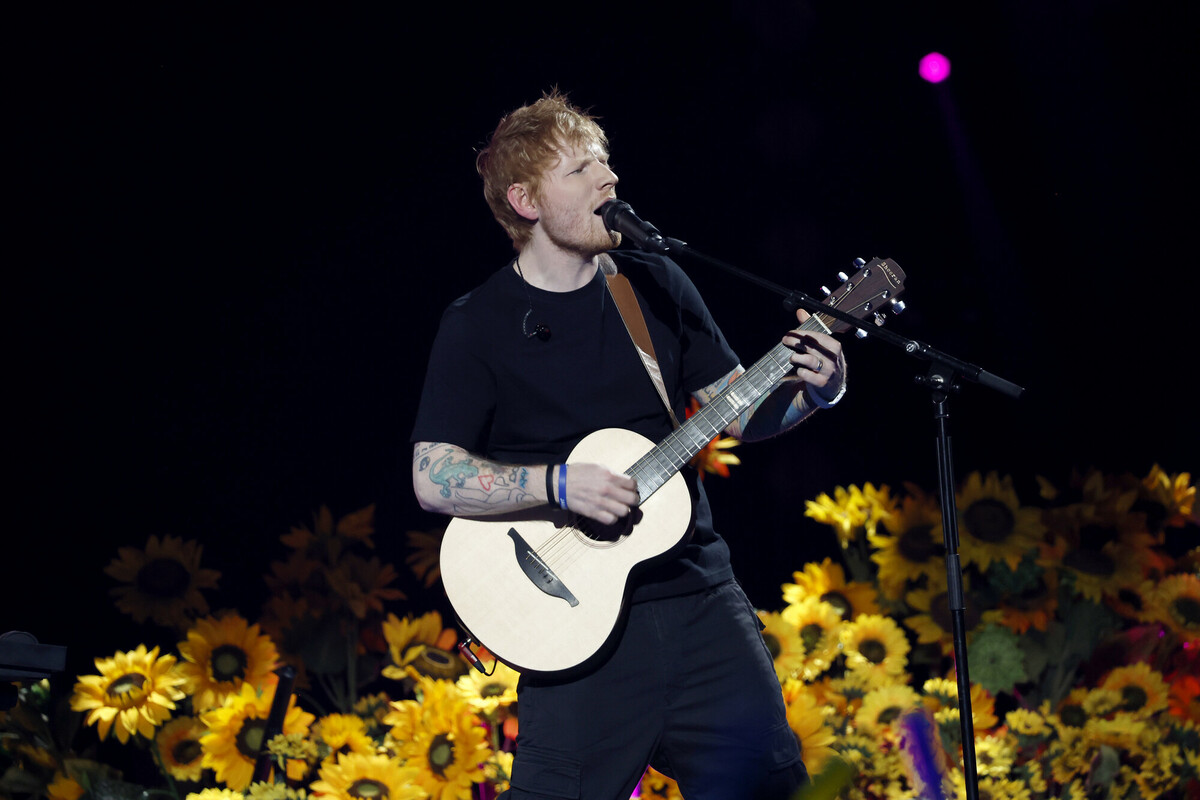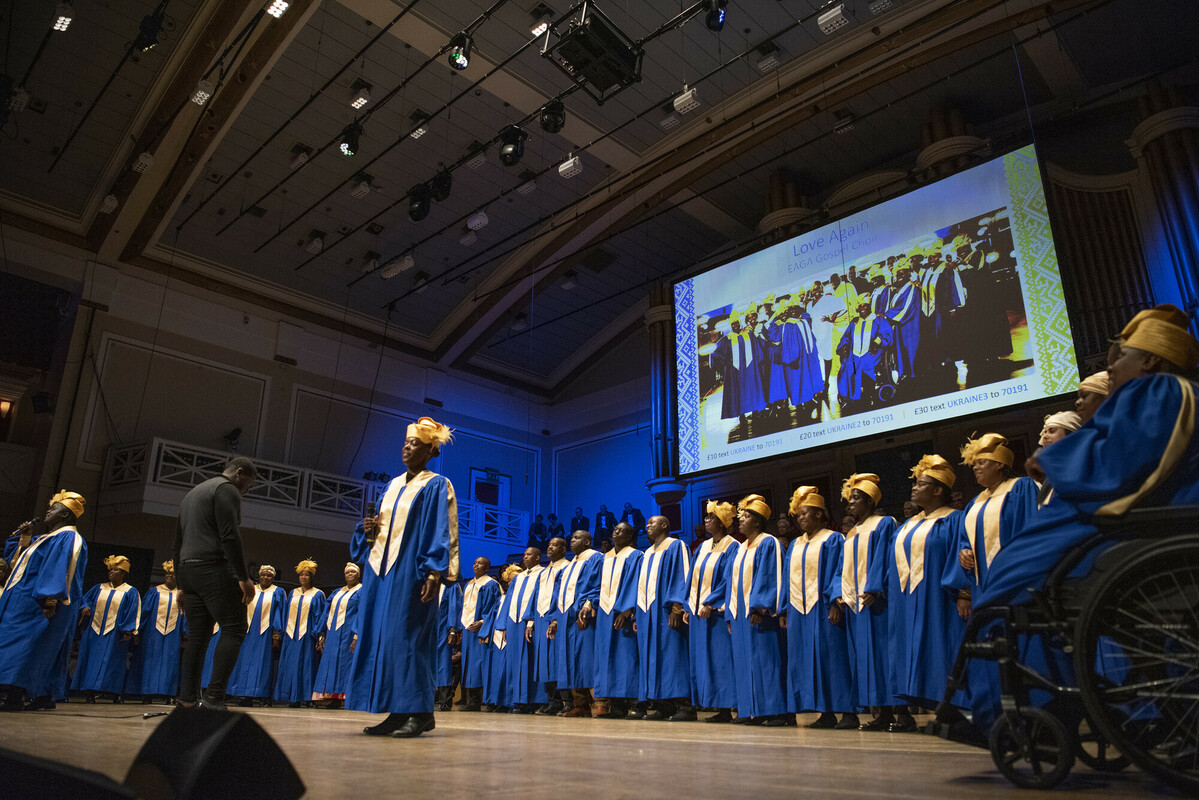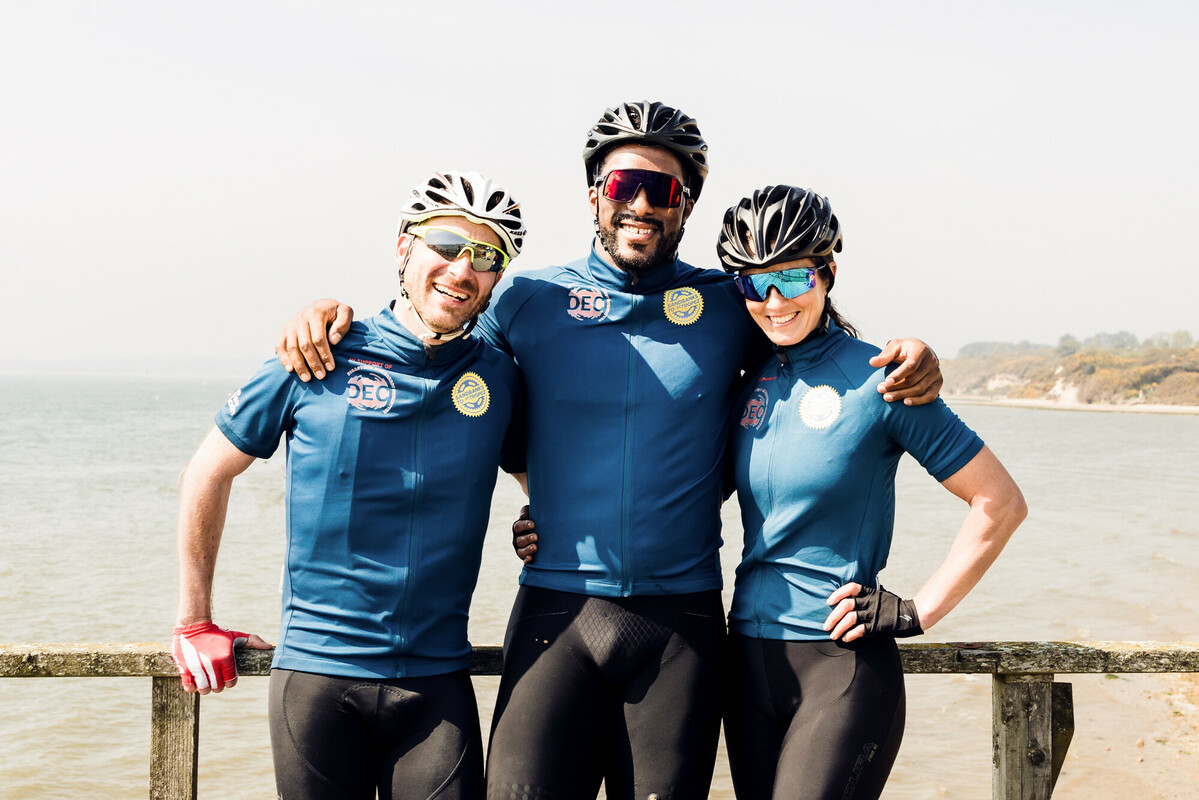The DEC Ukraine Humanitarian Appeal was launched just one week after the conflict suddenly escalated on 24 February 2022. The humanitarian need was instant and graphic, with more than a million people fleeing Ukraine in the first week and many more displaced inside the country due to intense fighting.
On 3 March, appeal films presented by actors Adrian Lester and Kit Harington aired following the evening news on the BBC, ITV, Channel 4, Channel 5 and Sky, asking for the public’s help. Appeals on commercial radio were voiced by actor David Tennant.
At a press conference in London launching the appeal, the DEC’s Chief Executive Saleh Saeed told a press conference: “The unfolding crisis in Ukraine is horrific and heart-breaking. And the grim reality is that it is likely to get worse.”
Sadly, he was proved right. But the response was truly extraordinary. With every day that the crisis worsened, individual fundraisers, community groups, employees and companies took time and effort to raise more money for the appeal.

In that first day, the appeal raised a massive £55 million, and in just four days, this rose to £100 million – the equivalent of more than £1 million an hour. This included generous donations from Her Majesty Queen Elizabeth II, His Majesty The King and His Royal Highness The Prince of Wales. The UK Government matched £25 million of public donations through Aid Match in an inspiring demonstration of support for those fleeing the conflict. Similarly support poured in from UK nations with the Scottish Government announcing a donation of £2 million and the Welsh Government donating £4 million.
The appeal set a new Guinness World Record for the most money raised online in one week (£61,997,547) and by the end of week two the total had reached £200 million – the equivalent of £3 for every person in the UK.
Now, almost a year on, that figure has doubled to £400 million – making the DEC the biggest charitable donor to the humanitarian response in Ukraine and to the regional refugee response, as reported through the UN OCHA Financial Tracking Service.
Of this total, 71% was donated directly to the DEC and 29% to DEC member charities who used DEC co-branding. The DEC only reports on funds that have come directly to the DEC.
The fundraising effort spread right across British society, with schools, businesses, grant funders, arts organisations, celebrities, sports clubs and local communities all coming together to lend their support to the appeal.
The appeal was also supported by major UK arts organisations, including the Royal Opera House, the National Theatre, the Southbank Centre, Sadler’s Wells, Glyndebourne Festival Opera, and the Ambassador Theatre Group. The Royal Opera House raised £400,000 while Ukrainian ballet stars performed at the Coliseum. Michael Palin joined an ‘Orchestra for Peace’ whose members included Ukrainian refugees, for a reading of Peter and the Wolf in Covent Garden.
From the world of sport, the Football Association, the England national football team, and English Premier League football clubs all did their bit to highlight the appeal. British Airways and the Rugby Football Union arranged a collection at Twickenham Stadium as England faced Ireland in the Six Nations.
In Wales, a flurry of activity was seen with fundraising concerts held across the country, and the Football Association of Wales and Cymru team nominating its international challenge match against the Czech Republic as a fundraiser for the appeal. In Scotland, a Ukrainian Bakery in Glasgow made headlines after raising £100,000 from the local community.

On 29 March Livewire Pictures organised a two-hour televised fundraising concert at the Resorts World Arena, Birmingham, featuring Ed Sheeran, Camila Cabello, Emeli Sandé, Snow Patrol, Nile Rodgers and Chic and Gregory Porter among others. The star-studded show was broadcast live on ITV and STV, where it was watched by 3.6 million people, and on Global radio stations Capital and Heart. It was also broadcast in other countries, including on Ukrainian television.
The evening included moving readings of refugees’ testimonies by actors Tamsin Greig and Eddie Marsan, films from Ukraine’s borders with actor and presenter Mel Giedroyc and TV personality Robert Rinder, and a video diary from an aid worker inside Ukraine. This event alone raised £13.4 million.
The DEC also received incredible support from a wide range of UK businesses, with employee fundraising, donations and pro-bono support. The DEC partnership with NatWest Group raised £10 million and won a Corporate Engagement Award for Most Effective One-Off Campaign. The Royal Mail added a postmark stamped on letters to highlight the appeal.
Philanthropic trusts and foundations also played a significant role, giving more than £15 million in the first six months of the appeal.
But the real stars of the appeal were the ordinary people up and down the country who raised money in their own way, showing extraordinary generosity. From bake sales to choral concerts, sponsored cycle rides to art fairs, all raised money for people affected by the conflict.

School pupils from St Matthew’s Roman Catholic School in Manchester released an uplifting take on New Order’s 1981 song ‘Ceremony’. Shan Burhan, aged 13, said: “I joined this project because I like music and I think it can change people's lives." The pupils also said that doing something to help made them feel less anxious about the conflict.
In May 2022, a team of 10 cyclists started out on an epic challenge to cycle from Sandbanks, UK to St Tropez, France in just 10 days, raising almost £22,000 for the appeal. Over the summer, Danny Newman ran 1,000 miles from John O’Groats to Land’s End, raising £4,237, while Paul Thompson and Sarah Wooton kayaked around Ireland, raising £23,000.
Over and over, the aid workers the DEC spoke to in researching this report thanked all the donors big and small for the money they have raised and given, making clear just how vital it has been – and given the extent of humanitarian need, how crucial it will be in the long term.

Marysia Zapasnik, Ukraine Country Director for the International Rescue Committee (IRC), says: “I just wanted to say how greatly we appreciate the generosity of the people of the UK. Their response and support for the people in need in Ukraine has been really heart-warming.”
Charlie Acland, from Concern Worldwide in Ukraine, says it is evident that the money is making a difference. “In terms of [emotional] toll, it’s just exhausting,” he says. “But it doesn't feel hopeless. It doesn't feel pointless, it feels like this is going to have an impact. You feel ‘we should be here…this is a good thing for people in the long term.’”
The people being helped with the funds also recognise that they have come from donations from people far away that they have never met. Amid a brutal and demoralising conflict, it can feel like a reminder that they are not alone, not forgotten.
The DEC is sincerely grateful to everyone who donated, who organised friends, families, colleagues and local communities to show support for people affected by this devastating conflict.
In the next 10 chapters, this report will explain why the money was needed and how it was spent by 13 of our member charities – leading UK aid agencies – and their local partners, helping millions of people across Ukraine and neighbouring countries.